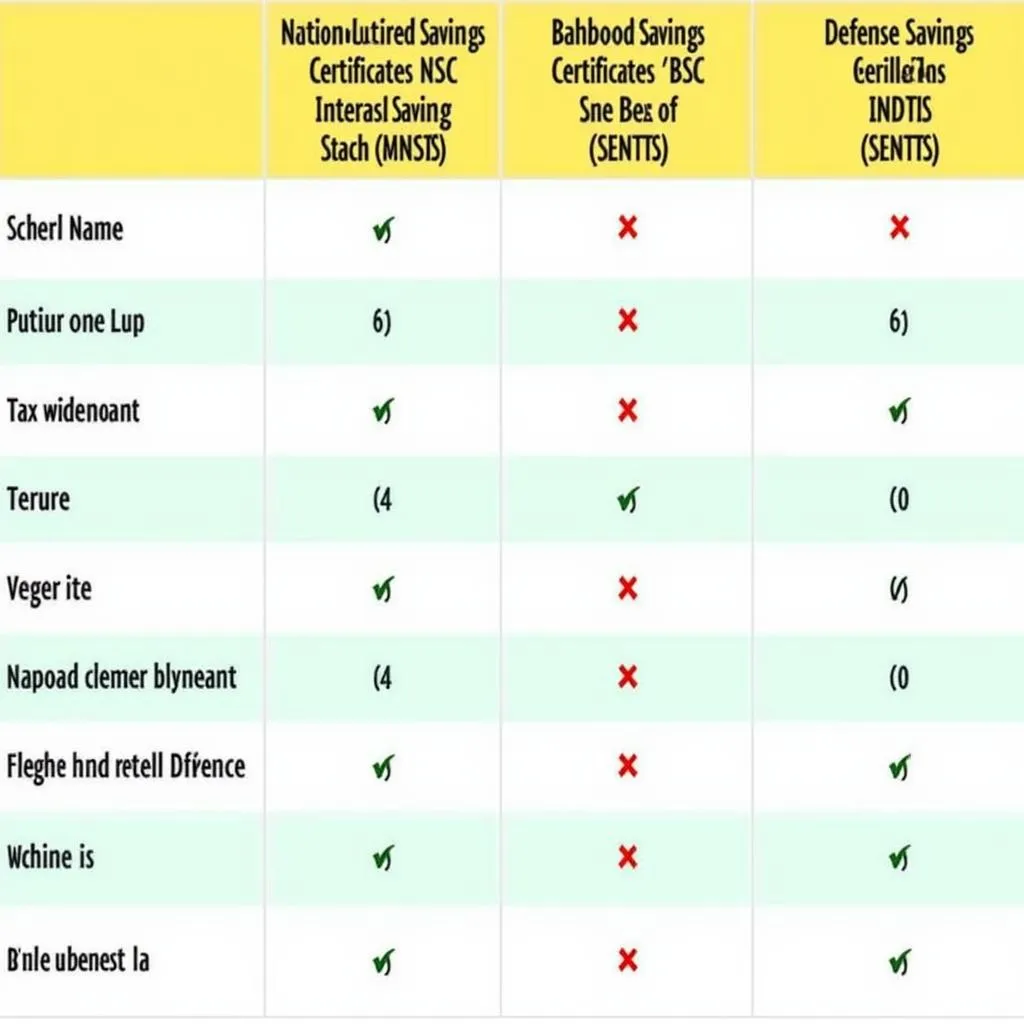Saving certificates in Pakistan are a popular investment avenue for individuals seeking a safe and reliable way to grow their savings. These government-backed instruments offer a fixed rate of return, making them an attractive option for risk-averse investors. This guide provides a comprehensive overview of saving certificates in Pakistan, covering the types, benefits, risks, and how to invest.
Types of Saving Certificates in Pakistan
The government of Pakistan offers a variety of saving certificates tailored to cater to the diverse needs of investors. Some of the most popular types include:
- National Savings Certificates (NSC): NSCs are one of the most commonly held saving certificates, offering competitive interest rates and tax benefits.
- Defense Savings Certificates (DSC): Designed for individuals associated with the defense forces, DSCs provide attractive returns and are exempt from Zakat deduction.
- Bahbood Savings Certificates (BSC): These are specifically for senior citizens and widows, offering higher profit rates and other benefits.
- Regular Income Certificates (RIC): As the name suggests, RICs provide monthly income, making them ideal for individuals seeking a regular stream of passive income.
- Prize Bonds: While not strictly saving certificates, prize bonds offer the chance to win large sums of money through lucky draws, along with a nominal return.
Benefits of Investing in Saving Certificates in Pakistan
Investing in saving certificates in Pakistan offers several advantages:
- Guaranteed Returns: One of the most significant advantages is the guarantee of returns. The interest rate is fixed at the time of purchase and remains the same throughout the tenure, providing predictability and peace of mind.
- Safety and Security: Saving certificates are backed by the government of Pakistan, making them one of the safest investment options available. Your investment is secure, and you are guaranteed to receive your principal plus interest.
- Tax Benefits: Several saving certificates offer tax benefits, allowing you to save on your income tax liability.
- Easy to Invest: Purchasing saving certificates is a straightforward process. You can visit designated banks or the National Savings Centers to invest.
- Liquidity Options: While some saving certificates have a fixed tenure, others offer varying degrees of liquidity. You can choose a certificate that aligns with your investment horizon.
 National Savings Certificate in Pakistan
National Savings Certificate in Pakistan
Risks Associated with Saving Certificates
While saving certificates are considered low-risk investments, it is essential to be aware of the potential downsides:
- Inflation Risk: The fixed interest rate offered by saving certificates may not keep pace with inflation, eroding the purchasing power of your returns over time.
- Premature Withdrawal Penalty: Most saving certificates come with a lock-in period, and withdrawing your investment before maturity can result in penalties.
How to Invest in Saving Certificates in Pakistan
Investing in saving certificates is a relatively simple process:
- Choose a Certificate: Select the saving certificate that best suits your investment goals and risk tolerance. Consider factors like the interest rate, tenure, and tax benefits.
- Visit a Designated Bank or National Savings Center: Gather the necessary documents, including your CNIC and proof of residence, and visit a designated bank or National Savings Center.
- Fill out the Application Form: Provide accurate information on the application form, including your personal details, investment amount, and nominee details.
- Make Payment: You can pay for the saving certificate in cash, through a bank draft, or a pay order.
- Receive your Certificate: Once the payment is processed, you will receive your saving certificate, which serves as proof of your investment.
Choosing the Right Saving Certificate
With the array of saving certificates available, choosing the one that aligns with your financial goals is crucial. Consider your investment horizon, risk appetite, and tax implications.
- Short-Term Goals: If you have short-term financial goals, such as saving for a down payment on a house or a car, consider certificates with shorter tenures, like NSCs.
- Long-Term Goals: For long-term goals like retirement planning, opt for certificates with longer tenures, such as Defense Savings Certificates or Bahbood Savings Certificates.
- Tax Planning: If you are looking for tax-efficient investment options, consider certificates that offer tax benefits, such as National Savings Certificates.
 Comparison of Different Saving Certificates in Pakistan
Comparison of Different Saving Certificates in Pakistan
Saving Certificates and Your Financial Portfolio
Saving certificates should be a part of a well-diversified investment portfolio. While they offer safety and guaranteed returns, it’s wise to spread your investments across various asset classes, such as stocks, bonds, and real estate, to mitigate risks and maximize your potential returns.
Saving Certificates vs. Other Investment Options
Saving certificates offer a different risk-return profile compared to other investment options:
- Saving Certificates vs. Bank Deposits: While both offer safety and guaranteed returns, saving certificates typically provide higher interest rates than bank deposits.
- Saving Certificates vs. Stocks: Stocks have the potential for higher returns but come with higher risks. Saving certificates offer a more stable and predictable return, making them suitable for risk-averse investors.
- Saving Certificates vs. Mutual Funds: Mutual funds pool money from multiple investors to invest in a diversified portfolio of assets. While they offer diversification, returns are not guaranteed and can fluctuate.
The Impact of Inflation on Saving Certificate Returns
Inflation can significantly impact the real returns generated by saving certificates. If the inflation rate is higher than the interest rate offered by your certificate, the purchasing power of your returns will erode. It’s crucial to consider the prevailing inflation rate when investing in saving certificates.
 A family saving for their future with a Saving Certificate
A family saving for their future with a Saving Certificate
Conclusion
Saving certificates are a valuable investment tool for individuals seeking a safe and reliable avenue to grow their savings in Pakistan. With various certificates available, you can choose one that best aligns with your financial goals and risk tolerance. Understanding the types, benefits, and risks associated with saving certificates is essential to make informed investment decisions and secure your financial future.
FAQs
1. What is the minimum investment amount for saving certificates?
The minimum investment amount varies depending on the type of saving certificate.
2. Can I nominate someone for my saving certificate?
Yes, you can nominate one or more individuals for your saving certificate.
3. What happens to my saving certificate upon maturity?
You can either encash your certificate or renew it for another term.
4. Can I withdraw my investment before maturity?
Premature withdrawals are generally allowed, but penalties may apply.
5. Are saving certificates transferable?
Yes, saving certificates can be transferred to another individual.
6. Where can I get more information about saving certificates in Pakistan?
You can visit the National Savings website or contact designated banks and National Savings Centers.
For Further Information:
For more insights into investment options in Pakistan, explore these articles on our website:
Need Assistance?
For any further assistance regarding saving certificates in Pakistan, please don’t hesitate to contact us:
Phone: +923337849799
Email: news.pakit@gmail.com
Address: Dera Ghazi Khan Rd, Rakhni, Barkhan, Balochistan, Pakistan
Our dedicated customer care team is available 24/7 to assist you.